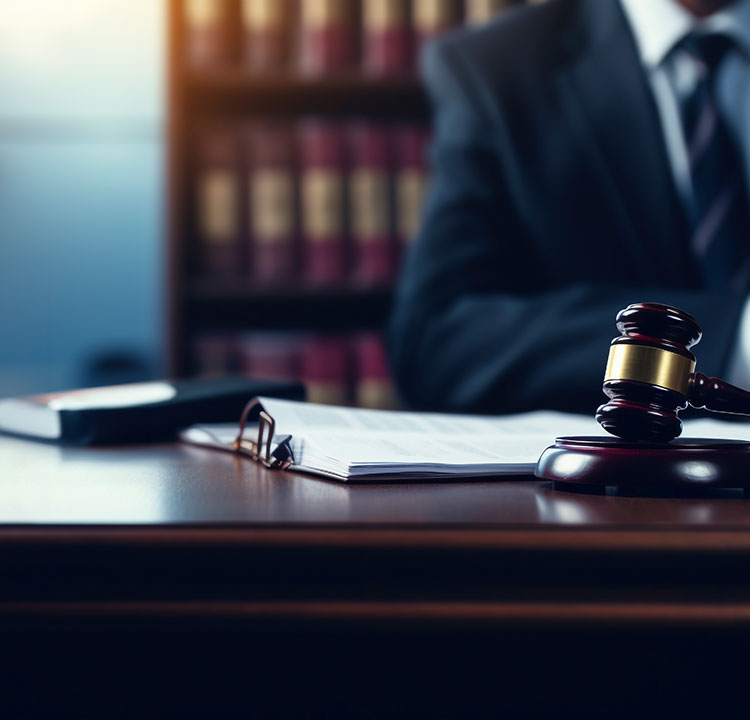Sumter Criminal Defense Lawyer

In the United States, we all know you are innocent until proven guilty, but it is still in your best interest to have a Sumter criminal defense lawyer who can represent you to ensure that a proper investigation was conducted, can perform an independent investigation, and can present evidence in your defense.
What Does a Criminal Defense Lawyer Do?
A defense attorney has a vital role in the United States justice system. Their job is focused on defending individuals who face criminal charges. This could range from minor offenses, like traffic violations, to more serious crimes, such as domestic violence, fraud, or even federal crimes.
In places like Sumter, the position of a criminal defense attorney was designed to help clients navigate what can be a complicated legal process. Their support can start at the arrest and continue all the way to court trials and an appeal. The primary goal of a criminal lawyer is to help ensure that their client’s rights are not violated during legal proceedings and achieve the most favorable outcome possible for their case.
Duties of a Criminal Defense Lawyer
The specific duties of a criminal defense lawyer can vary each day. Sometimes, they spend time investigating a case by collecting facts and evidence that will be used to help them craft a strong defense strategy.
In instances of accidents or injury, a defense lawyer can also look into their client’s medical records to assess the severity of their injuries. They can also find key witnesses who can help add credibility to their client’s account of events.
In other cases, such as tax-related crimes, a defense lawyer can analyze financial records or find a professional who can weigh in with their unbiased opinion.
Overall, a criminal defense attorney has the knowledge and experience to supervise and support a case from start to finish. They can work to ensure that their client receives a fair trial.
What Evidence Can Help Defend a Client?
The odds of winning a case are significantly increased when compelling evidence is presented in court that raises doubts about the prosecution’s claims. Some of the most common forms of evidence used to dismiss or reduce a charge include:
Alibi Evidence
The use of an alibi in a defense strategy can help prove that an individual was elsewhere when the crime occurred. This is one of the most compelling pieces of evidence that a defense attorney can leverage, as it directly challenges the prosecution’s claim that the defendant was at the crime scene.
While witness statements from credible individuals are commonly used to make this case, successful defense attorneys have also presented surveillance footage to demonstrate their client’s whereabouts. Other pieces of evidence could include GPS coordinates from a cell phone, credit card transactions, or even a receipt from a business.
Physical Evidence
This type of evidence includes any material item that can be presented in court. It’s commonly used for cases where there is an accusation of bodily harm or property damage. For example, a medical report could show that an individual’s cuts and bruises are not aligned with the timing of when they have accused someone of hurting them. A lack of forensic evidence at the scene of the crime, like DNA or fingerprints, can also raise doubts in a judge and jury that the defendant was actually involved in the alleged crime.
Expert Testimony
Sometimes, a defense attorney can bring in an expert witness who can offer a professional opinion on a matter. In federal crimes, this could be a forensic accountant or cybersecurity analyst who can decipher specific details that go beyond the average juror’s understanding. Another example would be a scientist who can do their own independent research on DNA to explain what significance it has in proving an allegation to be true or false.
Character Witness
A character witness is someone who is well acquainted with a defendant and can speak to their personality and behavior. They could also provide examples that showcase the defendant’s ethical standards. These testimonies aim to help show the positive sides of the individual’s character. This could be extremely helpful, as the judge and jury are introduced to the individual through a criminal accusation.
Some of their testimony could suggest a strong unlikelihood that the individual would commit a crime. These testimonies are useful, but they do not stand on their own due to the risk of bias that comes from a friend or family member.
Documentary Evidence
Any relevant piece of written or recorded material can also be used as evidence. In an accident-related case, this could include the official police report, an insurance claim, or even the individual’s medical records. These documents can help the court better understand the nature of their injuries.
In financial crimes, evidence such as transaction histories will be scrutinized to give further context to the larger story of what happened. The court appreciates having a ton of documentary evidence to consider, as it often helps figuratively bring them to the scene of the alleged crime and generate their own opinion on who is to blame.
While these are some of the major categories of evidence used in defense cases, the possibilities are not limited to this list. If you have been accused of a crime, be sure to work closely with your defense attorney to legally collect all evidence that can help support your position on what really happened.
What Rights Does a Defendant Have in a Criminal Defense Case?
Being accused of a crime can be very distressing, which is why it’s important to understand what rights you are granted as a United States citizen. These can allow you to prove your innocence or worthiness of a reduced punishment.
Some of these rights include:
- Right to an attorney: Everyone has the right to be represented by a professional attorney. If the defendant has no means of paying for these services, the court is required to provide one at no charge.
- Right to an impartial jury: Defendants have a right to make their case in front of an impartial jury of their peers. Before the final jury is selected, it is required that they are extensively questioned to rule out anyone who may have a bias toward any details of the case.
- Right to confront witnesses: Defendants and their attorneys are allowed to cross-examine any witnesses who are using their own voice to testify against them. It gives the defendant an opportunity to point out gaps in the opposing counsel’s recollection of events or question their credibility.
- Right to a speedy and public trial: Defendants have the right to a prompt trial. This is to avoid any unnecessarily long pre-trial imprisonment and prolonged periods of public scrutiny before a verdict is reached. The public nature of a trial is to ensure that the transparent nature of the case can foster fairness on all sides of the matter.
- Right to remain silent: The Fifth Amendment of the Constitution gives everyone the right to refuse to testify against themselves in court. This is otherwise known as the right against self-incrimination. It also means that you are not required to share anything with law enforcement during interrogations.
- Right to be informed of charges: Anyone who is accused of committing a crime has the right to be informed of the nature of the charges. This is a right given to everyone so that they have an adequate amount of time to prepare to defend themselves in court with their attorney.
- Right to an appeal: When a defendant is found guilty, they have the right to regroup with their attorney and issue an appeal to the decision. The justification for an appeal can be based on a number of different angles to reverse the decision, such as a legal error or new evidence that has emerged.
- Right to be presumed innocent: Unless a guilty verdict has been formally issued by a judge and jury, all defendants are presumed innocent. This means that the burden of proof rests with the prosecution, who needs to prove their guilt, rather than the defendant proving their own innocence.
Understanding Plea Bargains in Criminal Defense
A plea bargain is an agreement made within criminal cases between the prosecutor and the defendant. This agreement is where a defendant agrees to plead guilty to the allegations they face or another, lesser offense. In exchange, the prosecutor offers some concessions, such as reduced penalties.
There are a few different types of plea bargains, including:
- Charge bargaining: This is when the defendant pleads guilty to a less severe charge. This could mean a lower fine or reducing a felony to a misdemeanor.
- Sentence bargaining: If a defendant might spend time in prison, they could exchange a guilty verdict for the promise of a reduced prison sentence. This could also be used to request parole instead of spending any time behind bars.
- Fact bargaining: A defendant may agree to stipulate certain facts within a case to prevent other information from being introduced to the court that could damage their case or reputation.
While leveraging any of these plea bargaining tactics can bring value to a defendant, it could also pose some drawbacks. For example, the fear of being given a harsh sentence could pressure them to plead guilty to something that they did not do. Working with a defense attorney through these tactics can help reach a consensus on what avenue has the highest chance of adding value to the case.
Contact Deas Law Firm Today
At Deas Law Firm, we work tirelessly for you to make sure you are fairly compensated on your personal injury case. From slip and fall cases or even catastrophic injury cases, Deas Law Firm is ready to fight for you and your rights. Call us today or fill out the online form to discuss your personal injury case.

Schedule your free consultation today by calling (803) 775-7004 or by filling out our online form.
Contact Us Today
Ready To Speak With An Attorney?
Fields marked with an * are required
"*" indicates required fields


